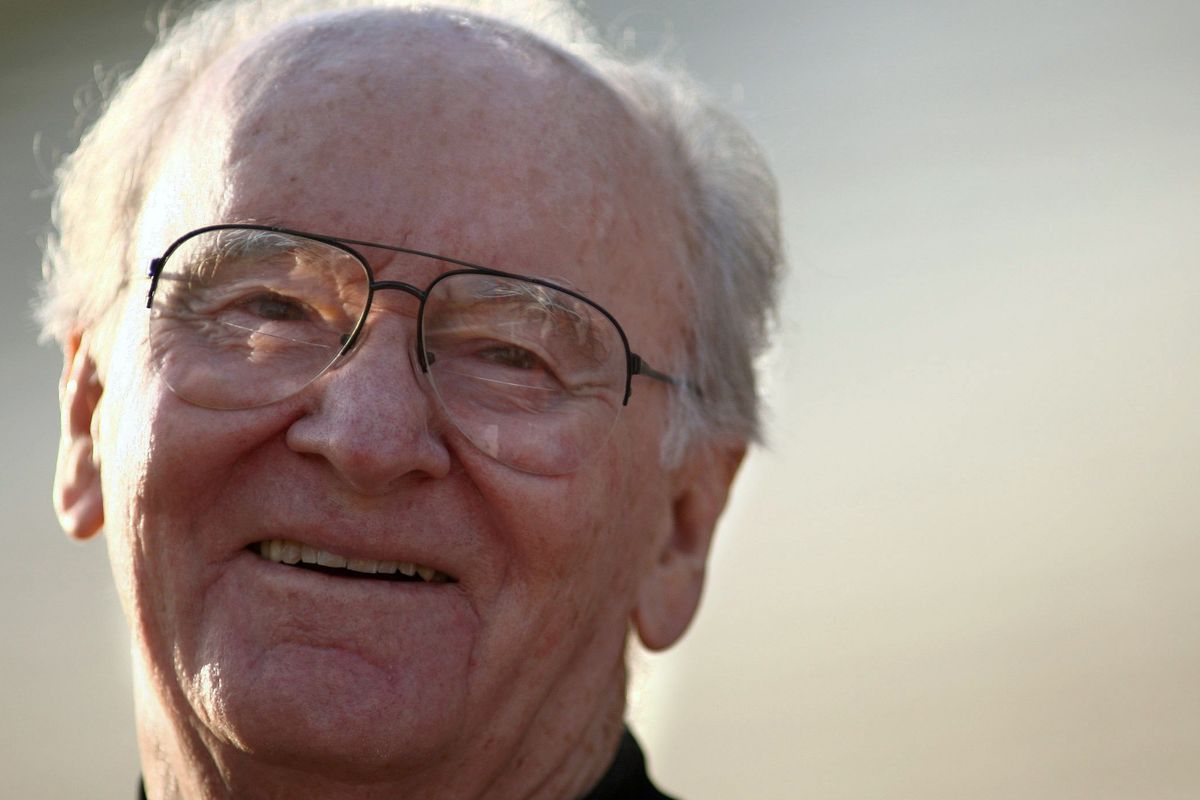UW legend Don James dead at 80

SEATTLE – The first staff meeting of Don James’ long, legendary football coaching career at the University of Washington began with an edict that exemplified the coach’s famed attention to detail.
This is how Jim Lambright, a holdover at that time from former coach Jim Owens’ staff, remembers that meeting prior to James’ inaugural season at UW in 1975.
“Everybody take a look at your watch,” Lambright recalled James telling the staff. “This meeting is to start at 7:30. So when I come through the door, it is 7:30. If I come through the door at 7:40, it is 7:30. If I come through the door at 7:15, it is 7:30. Do you hear me?”
Yes, Coach. Loud and clear.
James, who died Sunday morning at age 80 at his home in Kirkland, Wash., after a battle with pancreatic cancer, will be remembered for his unrelenting organizational skills, which made so successful his storied, 18-year tenure as the Huskies’ coach. He will be remembered as the best to ever hold that position at UW, leading the Huskies to six conference championships, four Rose Bowl championships, and, most notably, an unbeaten, 12-0 record in 1991 that led to a share of the national championship.
Simply put, to more than one generation of Huskies fans, Don James – “The Dawgfather,” as he became known – set the standard of success for football at the University of Washington. His achievements remain the benchmark for any and all coaches after him.
“He brought a style and a class all his own,” said former quarterback Billy Joe Hobert, who helped lead the Huskies to an unbeaten record in 1991. “That sounds cliché, but he was so classy and so elegant about the way he handled things throughout his entire career there. I don’t see too many men who operate the way he did.”
James operated with detail and precision and demanded the same of his players, who came to revere – if not fear – his strict, disciplined approach.
It’s why James observed practices from a tower high above the field, taking notes and providing assistant coaches with a list of improvements he wanted made after each session.
“Don was matter-of-fact in everything,” said Lambright, who was promoted to defensive coordinator in 1977, a position he held until James’ retirement in 1993, when Lambright was promoted to head coach. “He wrote everything down. He could tell you how many golf balls he’d hit this year up to this date, and last year up to this date, and the year before up to this date. He could tell you how many miles he’d driven on his car this year and last year.
“That’s why he also did his coaching from the tower, because Don was not a coach where his comfort zone was down on the field with his arm around one of the players. He was in his comfort zone when he was in a tower, taking notes on what was happening at practice.”
James might have been all business, but he had a lighter side, too. Former Washington State coach Jim Walden remembers fondly his relationship with James.
The two were friends despite their “Mutt and Jeff” differences in personality, Walden said, and routinely golfed together in the offseason.
“He had a much better sense of humor than he ever got credit for,” said Walden, an affable, outspoken sort. “He had a system, he had a regulation and by golly, that’s what he did. I liked that about him.”
The number of victories, NFL talent and accolades accumulated by James during his UW career are staggering. His teams won 153 games in 18 seasons, and qualified for 15 bowl games in that time. He saw 109 of his players drafted by NFL teams – 10 in the first round, Cheney’s Steve Emtman among them.
James, born in December of 1931 in Massillon, Ohio, played quarterback at the University of Miami (Fla.), earned a Master’s of Education from the University of Kansas, was commissioned as a second lieutenant in the U.S. Army, and was hired to coach UW in 1975 after leading Kent State to a 25-19-1 record in four seasons.
He had skeptics, especially after his first two seasons at UW yielded final records of 5-6 and 6-5. But after QB Warren Moon led the Huskies to a 10-2 record in 1977 and a victory over Michigan in the 1978 Rose Bowl – followed by back-to-back Rose Bowl appearances in 1980-81 – James was entrenched as one of the nation’s most commanding coaching figures. So consistently talented were the Huskies under James that Sports Illustrated once listed college football’s three best coaches: Don James, Don James and Don James.
The end of James’ UW tenure was unceremonious, a conclusion unbefitting his accomplishments. He retired prior to the 1993 season after the NCAA levied sanctions against the Huskies for “lack of institutional control,” handing down a two-year bowl ban that James felt was unfair – and that the UW administration, he felt, did little to avoid.
“He kept so much stuff inside of him that you really never knew what he was thinking about,” Lambright said. “But we knew he was really struggling with all of that and how unfair it was.”
He is survived by his wife of 61 years, Carol, and their three children.
Details of a public memorial service are forthcoming, according to a release from UW.